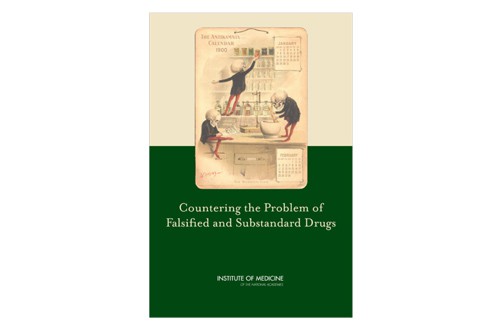
Countries across the world need to work together to target the illicit activities that lead to patients taking falsified, sub-standard and counterfeit medicines.
According to a new report by the Institute of Medicine (IOM), illegal medicinal products were sold in at least 124 countries during 2011, with low- and middle-income countries – where up to 90 per cent of people pay for drugs out of their own pocket – the most affected.
Countering the Problem of Falsified and Substandard Drugs claims that it is largely the neglect of good manufacturing practices that is fuelling the growth in these counterfeit medicines, with some drug makers cutting corners.
“In developing countries, some manufacturers flout best practices, aided by lax regulators or domestic pressures to turn a blind eye to such problems in order to promote local industry,” said the IOM.
This lack of proper manufacturing techniques can include purposely making drugs with less active ingredient; not rigorously cleaning equipment between runs; and failing to use adequate water filtration systems to combat microbial growth.
Despite such practices being more common in developing nations, the report also pointed out that problems also existed in more developed nations, with negligence at a factory in Massachusetts, US, leading to the deaths of 44 people between September 2012 and January 2013.
Policing such practices can be difficult, however, especially in poorer countries, which are unable to afford the specialist equipment needed to tell fake medicines from real products.
Drug regulators are also unable to effectively enforce legislation when drugs are manufactured by unlicensed companies.
To overcome these challenges, the IOM says countries need to work together to strengthen drug distribution systems, and it also called for a voluntary international agreement to share systems for surveillance, regulation and law enforcement.
This would empower countries to prevent and respond to drug quality problems, said its report.
Such a global approach was backed by the US FDA, which asked the IOM to assess the global public health implications of false medicines.
The US regulator said it was already engaging in a global dialogue and included working with the World Health Organization (WHO) on the issue.
“The FDA recognises that all countries need to work together to ensure safe medicinal products for their citizens due to the increasing complexity of the global economy,” said the Agency.
Other ways to help limit use of falsified medicines suggested by the IOM included increased investment from the private sector, including funding from the International Finance Corporation and the Overseas Private Investment Corporation to purchase suitable manufacturing equipment.
In order to boost legitimate retail sales of medicines, governments were also encouraged to provide private sector employees with benefits, including tax breaks, scholarships and housing subsidies.
In addition, the IOM said although a stronger generics market could help by controlling the cost of medicines, that would bring further challenges. It concluded: “Creating a stronger generic drug market will rely on rigorous regulatory systems to bolster confidence in the quality of these products.”




